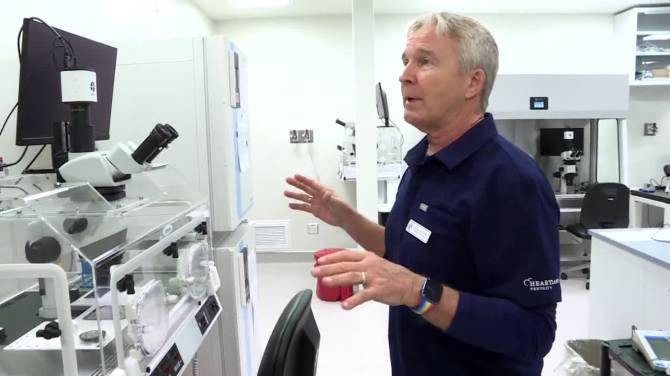The Manitoba government is trying to make it easier for people to afford starting a family by doubling the Fertility Treatment Tax Credit.
The original tax credit, introduced by the previous NDP government in 2010, gave up to $8,000 in tax refunds for $20,000 spent on treatment. Now, premier Wab Kinew stated, “you’ll be able to receive $16,000 per year in refunds when you spend $40,000.”
Eligible expenses will now also include surrogates and donors’ medical costs, payments to fertility clinics and donor banks, the province announced.
It will still cover fertility clinic fees and related prescription medications.
Dr. Gordon McTavish, medical director at Heartland Fertility Clinic, expressed his support for the tax credit, and is pleased that it’s not limited to just “one opportunity.”
“Many other provinces in the country only provide funding for one IVF (In Vitro Fertilization) cycle per lifetime. We know that sometimes more than one cycle of IVF is necessary,” he said, adding that the technology is great, but not flawless and does not guarantee pregnancy every time.
“The financial burden — if you only have that one chance and it doesn’t succeed — then it’s very difficult to overcome some of those financial obstacles.”
McTavish noted that the average cost of IVF has nearly doubled since the initial 2010 tax credit, now averaging around $20,000 per cycle.
“This doubling of the tax credit will really be advantageous for some individuals who have been undecided,” he stated, noting that one in six people experience infertility.
“That’s a significant number of people who are grappling with a medical issue and are unable to achieve the goal of becoming parents.”
McTavish mentioned that despite increased staff and clinic space, Heartland has waitlists as long as five months due to high demand.
Other Manitobans are unable to access fertility care in Manitoba and need to travel out of the province.
Minister Uzoma Asagwara mentions that these individuals are currently not covered under the tax credit. At least not at this time.
“This was originally implemented by a previous NDP government, and it’s our NDP government now that’s taking another step,” the minister said, adding the government is dedicated to “ensuring that we’re always open to hearing the feedback from people who have this lived experience in terms of what additional steps maybe we can take.”




